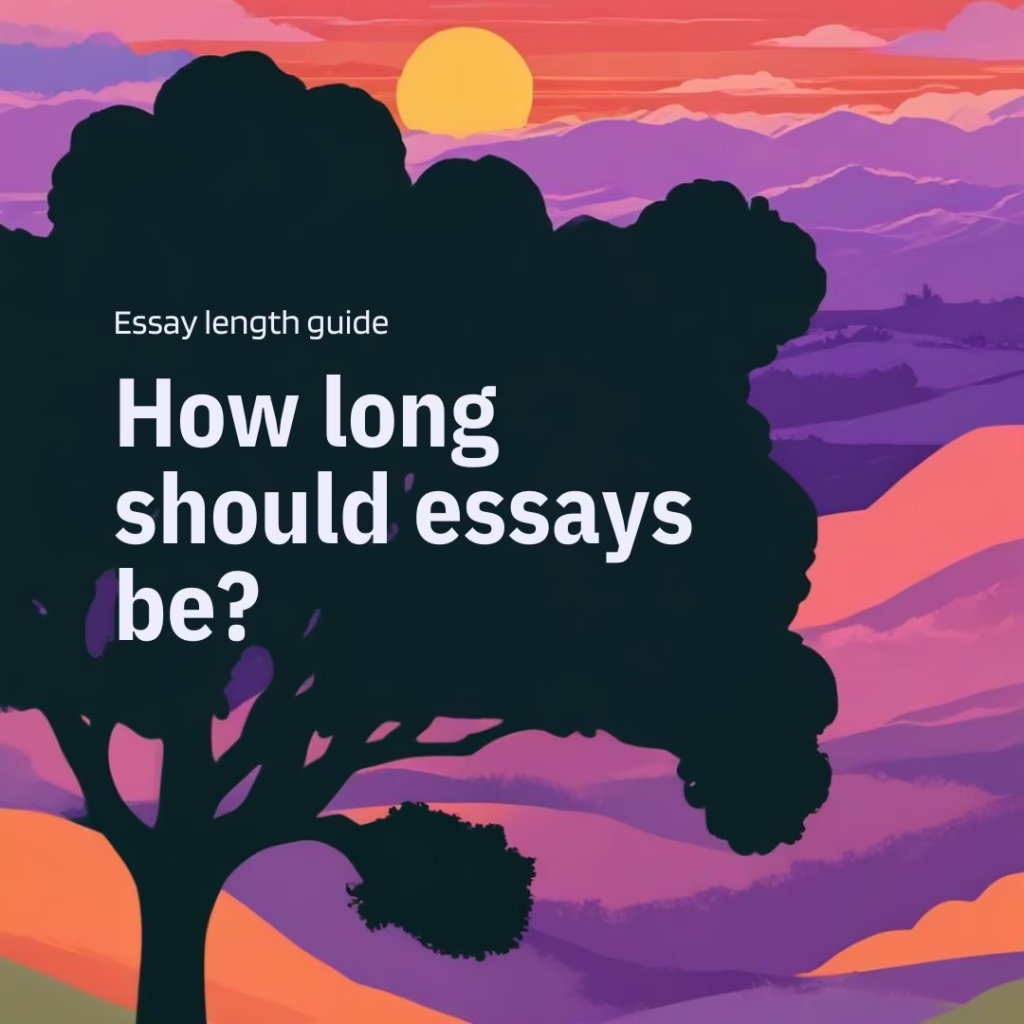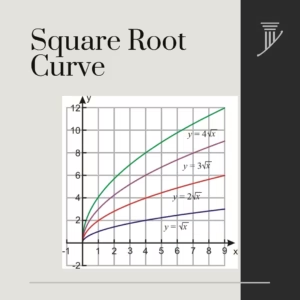How long is an essay? The length of an essay is crucial in academic writing, as it influences how effectively you can articulate your ideas and maintain clarity in your arguments. If you’ve ever been curious about essay lengths, this blog will provide insights into typical lengths, the factors that affect them, and tips for crafting essays that meet the right length requirements.
Understanding Essay Length
Definition of Essay Length
Essay length refers to the total number of words or pages in an essay, typically dictated by assignment guidelines or academic standards. Following these requirements is essential for several reasons. First, it ensures your essay adequately covers the topic, allowing you to present arguments and support them with evidence. Adhering to length guidelines also prevents essays from being too long or too short. An excessively lengthy essay can lead to repetition, while a paper that is too short may fail to convey key ideas. Ultimately, understanding the required essay length is vital for effective communication, demonstrating your ability to follow guidelines and present your ideas clearly and concisely.
Common Length Guidelines
Understanding typical essay lengths is important for meeting academic expectations and effectively communicating your ideas. Here are common length guidelines based on the purpose of the essay:
High School Essays
High school essays typically range from 500 to 1,000 words or about 1 to 2 pages. These essays include personal reflections, literary analysis, and arguments. The shorter length helps students practice concise writing, develop clear arguments, and support their claims with evidence while learning fundamental essay structures.
College Application Essays
College application essays typically range from 250 to 650 words, about one page. These essays require students to share their personal stories, motivations, and aspirations. This word count allows applicants to express their individuality and showcase their writing skills without overwhelming the admissions committee. In the competitive nature of college admissions, every word matters, making it crucial for students to be clear, engaging, and authentic. The shorter length encourages a focus on key experiences and reflections that effectively highlight their qualifications and character.
Academic Essays
Academic essays typically range from 1,500 to 5,000 words, or about 4 to 15 pages. Assigned in college and university courses, these essays require a deeper exploration of a topic, along with critical analysis and synthesis of sources. Students must engage with existing literature, present well-structured arguments, and support their claims with substantial evidence. The longer length allows for multiple perspectives and in-depth discussions, making it essential for students to develop strong research and writing skills.
Research Papers and Theses
Research papers and theses are extensive works typically exceeding 5,000 words or 15 pages. These documents require rigorous research, critical thinking, and a deep understanding of complex topics. Students must formulate a research question, conduct a literature review, design a methodology, and coherently present their findings. This length allows for in-depth analysis, data examination, and contributions of original insights to the field. Given the academic rigor of these assignments, students must demonstrate their ability to engage with scholarly work and articulate their arguments effectively.
Factors Influencing Essay Length
Purpose of the Essay
The purpose of an essay is multifaceted and serves various objectives depending on the context in which it is written. Understanding the primary purposes can help writers effectively communicate their ideas and engage their audience. Here are some key purposes of an essay:
To Inform
Essays often aim to educate the reader about a specific topic or concept. Allowing readers to gain a better understanding of the subject matter, informative essays provide factual information, explanations, and insights. This purpose is common in academic settings where the goal is to convey knowledge and promote learning.
- Example: A scientific essay explaining climate change might detail its causes, effects, and potential solutions, helping readers grasp complex environmental issues.
To Persuade
Many essays are written with the intent to persuade or convince the reader of a particular viewpoint or argument. Persuasive essays utilize logical reasoning, emotional appeals, and credible evidence to influence the audience’s beliefs or actions.
- Example: An argumentative essay advocating for renewable energy might present data on environmental benefits, economic advantages, and ethical considerations, aiming to persuade readers to adopt sustainable practices.
To Analyze
Analytical essays dissect a topic or text, examining its components to understand deeper meanings and implications. This type of essay encourages critical thinking and allows writers to explore relationships, themes, and underlying messages.
- Example: A literary analysis of a novel may examine characters, plot development, and themes, providing insights into the author’s intentions and societal reflections.
To Reflect
Reflective essays focus on the writer’s personal experiences, thoughts, and feelings regarding a specific event or topic. This purpose allows for introspection and self-exploration, enabling writers to articulate their growth and learning.
- Example: A reflective essay about a volunteer experience might explore the lessons learned, challenges faced, and the impact of the experience on the writer’s perspective.
To Entertain
Some essays are crafted primarily to entertain the reader. These essays often employ humor, storytelling, and creative language to engage the audience while conveying a message or insight.
- Example: A personal narrative about a travel adventure can captivate readers through vivid descriptions and entertaining anecdotes, providing both enjoyment and insight into the writer’s experiences.
To Provoke Thought
Essays can also serve to challenge readers’ perceptions and provoke critical thinking. This purpose encourages readers to question their assumptions and consider alternative viewpoints.
- Example: An essay discussing ethical dilemmas may prompt readers to reflect on their values and the complexities of moral decision-making.
Audience Expectations
Understanding audience expectations is crucial for effective essay writing, as it impacts how content is received. Different audiences have unique needs, interests, and familiarity with the topic, influencing the writer’s approach. Here are key points to consider about audience expectations:
Knowledge Level
- Understanding the Audience’s Background: Writers must gauge the audience’s existing knowledge of the topic. Academic essays might be directed at peers, instructors, or experts, while general essays could be aimed at a broader public. Tailoring the complexity of the language and concepts to match the audience’s familiarity is essential.
- Implications for Content: For example, an audience well-versed in a subject may appreciate in-depth analysis and technical details, whereas a general audience may require simpler explanations and more context.
Interests and Relevance
- Appealing to Audience Interests: Writers should consider what interests their audience. An engaging essay often connects with the audience’s values, beliefs, or current trends. Understanding these interests helps in framing arguments and examples that resonate.
- Relevance to Current Issues: Essays that address timely or relevant issues can capture the audience’s attention more effectively. Writers should strive to link the topic to real-world scenarios that the audience can relate to.
Purpose and Expectations
- Clarifying the Audience’s Purpose: Different audiences read essays for various reasons—some seek information, others wish to be persuaded, and some may desire entertainment. Identifying the primary purpose behind the audience’s reading can help shape the essay’s tone and style.
- Expectations for Structure and Format: Academic audiences often expect a specific structure, including a clear thesis statement, supporting arguments, and a logical flow. Non-academic audiences may appreciate a more narrative approach, with engaging storytelling and less rigid formatting.
Tone and Style
- Adapting Tone Appropriately: The tone of the essay should align with audience expectations. Academic essays typically require a formal tone, while personal essays might embrace a conversational style. Balancing professionalism with accessibility is key to maintaining engagement.
- Language and Terminology: The choice of language, including jargon and technical terms, should be carefully considered. While specialized vocabulary may be appropriate for expert audiences, simpler language is more effective for general readers.
Feedback and Engagement
- Encouraging Audience Interaction: Writers should consider how to engage their audience actively. This can include posing questions, inviting reflections, or encouraging discussions. Engaging the audience creates a connection that enhances the impact of the essay.
- Responding to Feedback: Understanding audience expectations also involves being open to feedback. Writers can learn from audience reactions and adapt their writing styles or approaches in future essays to better meet expectations.
Topic Complexity
The complexity of a topic significantly influences the appropriate length of an essay. Simpler topics can be covered concisely, while more intricate issues require deeper exploration and a longer format. Here are key points to consider about topic complexity and its impact on essay length:
Depth of Exploration
- Basic vs. Complex Topics: Simple topics, such as personal experiences or straightforward concepts, can often be addressed adequately in 500 words. For example, an essay about a favorite book may only require a summary and personal reflections.
- In-Depth Analysis: In contrast, complex topics—such as social issues, scientific theories, or philosophical debates—demand a thorough examination. These essays usually require multiple layers of analysis, including historical context, various perspectives, and detailed explanations.
Need for Evidence and Support
- Supporting Arguments: More complex topics often necessitate the inclusion of substantial evidence to support claims. This may involve citing research studies, statistical data, expert opinions, or real-world examples, which can significantly lengthen the essay.
- Counterarguments: When addressing multifaceted issues, it’s important to consider and refute counterarguments. This not only strengthens the writer’s position but also adds to the essay’s length as it requires careful consideration of opposing views.
Nuanced Perspectives
- Multiple Viewpoints: Complex topics frequently involve a range of perspectives and interpretations. An essay on a contentious issue, such as climate change or immigration, may need to discuss various stakeholders’ views, which necessitates a more extensive treatment of the subject.
- Critical Thinking and Synthesis: Writers must synthesize information from different sources and viewpoints to present a balanced argument. This process requires careful thought and often leads to a longer essay as the writer navigates through contrasting ideas.
Contextual Considerations
- Historical and Cultural Context: Complex topics often require an understanding of the historical or cultural contexts that shape them. Providing this background information enhances the reader’s comprehension but also adds to the overall length of the essay.
- Implications and Consequences: Discussing the implications of a complex topic can further extend the length. For instance, an essay on the implications of artificial intelligence might explore ethical concerns, economic impacts, and future societal changes.
Audience Engagement
- Engaging the Reader: Complex topics often benefit from a longer format that allows for engaging storytelling or illustrative examples. This not only makes the essay more interesting but also aids in clarifying intricate concepts.
- Encouraging Reflection: Lengthier essays on complex subjects provide space for the writer to prompt readers to reflect on the significance of the topic, encouraging deeper engagement and understanding.
Assignment Guidelines
Assignment guidelines are crucial in shaping the structure, content, and length of an essay. They provide a framework for students, ensuring their work meets academic standards and fulfills specific criteria set by instructors. Here are key points to consider about the impact of assignment guidelines on essay writing:
Specified Length Requirements
- Word Count or Page Count: Most assignments come with explicit instructions regarding the expected length, which can be indicated in word count or page count. Adhering to these requirements ensures that the essay is thorough enough to cover the topic while remaining concise.
- Impact on Content: A specified length can dictate how deeply a topic can be explored. For instance, a short essay (e.g., 500 words) may limit the writer to a basic overview, while a longer essay (e.g., 2,000 words) allows for a more comprehensive analysis and detailed evidence.
Formatting and Style Guidelines
- Formatting Requirements: Assignment guidelines often include specific formatting requirements, such as font size, margins, line spacing, and citation style (e.g., APA, MLA, Chicago). Adhering to these guidelines is essential for maintaining professionalism and consistency.
- Influence on Readability: Proper formatting enhances readability and allows the audience to navigate the essay more easily. Failure to follow formatting guidelines can detract from the overall presentation and impact the reader’s perception of the work.
Thesis and Argument Structure
- Clear Thesis Statement: Many assignments require a clear and concise thesis statement that presents the main argument or purpose of the essay. This guideline helps writers focus their content and provides a roadmap for readers.
- Logical Structure: Assignment guidelines often suggest a specific structure for the essay, including the organization of paragraphs and the flow of ideas. Following this structure ensures that the essay is coherent and that arguments are presented logically.
Required Content and Sources
- Content Specifications: Guidelines may specify certain topics or questions that must be addressed in the essay. This ensures that students remain focused on the assignment’s objectives and relevant issues.
- Source Requirements: Many assignments require the inclusion of specific types or numbers of sources, such as scholarly articles, books, or primary sources. This emphasis on research encourages writers to support their arguments with credible evidence and enhances the overall quality of the essay.
Evaluation Criteria
- Grading Rubrics: Assignment guidelines often include evaluation criteria or grading rubrics that outline how the essay will be assessed. These criteria may cover aspects such as clarity, argument strength, evidence quality, grammar, and adherence to guidelines.
- Understanding Expectations: Familiarizing oneself with the evaluation criteria helps writers understand what is expected of them and allows them to focus on areas that will enhance their overall performance.
Submission Guidelines
- Deadline and Format: Guidelines typically specify submission deadlines and formats (e.g., electronic submission, printed copy). Meeting these requirements is crucial for avoiding penalties and ensuring that the essay is considered for evaluation.
- Revision and Feedback Opportunities: Some assignments may allow for revisions based on feedback. Understanding these opportunities can help students improve their work and learn from the writing process.
How to Determine the Right Length for Your Essay
Review Assignment Requirements
When reviewing assignment requirements, it’s important to check for specified word or page limits. These guidelines help determine the appropriate length of your essay. Adhering to these limits ensures your writing is neither too brief nor overly lengthy. Understanding the expected length aids in planning your research, structuring your arguments, and managing your writing time effectively, ultimately enhancing the quality and coherence of your essay. By aligning your work with these requirements, you demonstrate your ability to follow instructions and engage critically with the topic.
Outline Your Ideas
Outlining your ideas is a crucial step in the essay-writing process that helps organize your thoughts and structure your arguments. Start by identifying your main thesis, which will be the central focus of your essay. Break this thesis down into key points or sections that will support your argument, and jot down relevant evidence or examples for each point. Organize these ideas in a logical sequence to guide the reader through your argument. A clear outline not only streamlines the writing process but also enhances the coherence and clarity of your final essay, ensuring that you stay focused on your main thesis.
Consider the Depth of Analysis
Considering the depth of analysis is essential for crafting a strong essay. The complexity of your topic determines how thoroughly you need to explore it. A well-developed analysis involves examining various aspects, including different viewpoints and implications. Ask yourself what evidence supports your arguments and whether counterarguments need addressing. Incorporating detailed examples and references to scholarly sources enriches your analysis and strengthens your claims. This depth not only enhances your argument but also showcases critical thinking, ultimately improving the overall quality of your essay.
Tips for Writing an Essay of Appropriate Length
Focus on Clarity and Conciseness
Write clear sentences that directly address your main points. Avoid unnecessary words or repetition.
Use a Structured Format
Stick to the standard structure of an essay:
- Introduction: Briefly state your main idea.
- Body Paragraphs: Expand on your arguments with examples and evidence.
- Conclusion: Summarize your essay and restate its purpose.
Revise and Edit
After writing, review your essay to cut fluff and fill in any gaps. Editing ensures your essay meets length requirements without compromising quality.
Conclusion
So, how long is an essay? The answer varies based on its purpose, complexity, and assignment guidelines. High school essays typically range from 500 to 1,000 words, while college application essays are shorter, between 250 to 650 words. Academic essays usually require more depth, ranging from 1,500 to 5,000 words, with research papers and theses often exceeding 5,000 words.
It’s essential to balance thorough analysis with clear, concise writing, providing enough evidence to support your arguments without overwhelming the reader. Ultimately, the goal is to create essays that engage and inform while adhering to specified length requirements
FAQs
- How long is an essay for high school?
Typically, high school essays are 500–1,000 words or about 1–2 pages. - How long is an essay for college applications?
College application essays usually range from 250–650 words. - How long is an essay for academic purposes?
Academic essays often range from 1,500–5,000 words, depending on the assignment. - What is the longest type of essay?
Research papers and theses are the longest, often exceeding 5,000 words. - Can an essay be too long?
Yes. If it exceeds the assignment’s word count, it may lose focus and clarity. - Can an essay be too short?
Yes. Short essays may fail to fully explain the topic or provide enough evidence. - How do I know the right length for my essay?
Follow the assignment guidelines and consider the topic’s complexity. - Does the type of essay affect its length?
Yes. Narrative essays are often shorter, while research essays are longer. - What happens if my essay doesn’t meet the word count?
Your grade might be affected if it’s too short or too long, so aim to meet the requirement. - Is quality or length more important in an essay?
Quality is more important. It’s better to write a clear, concise essay than to meet a word count with irrelevant content.
If you like reading this, you may also like
Thanks for reading, for more interesting articles, please visit our homepage.







